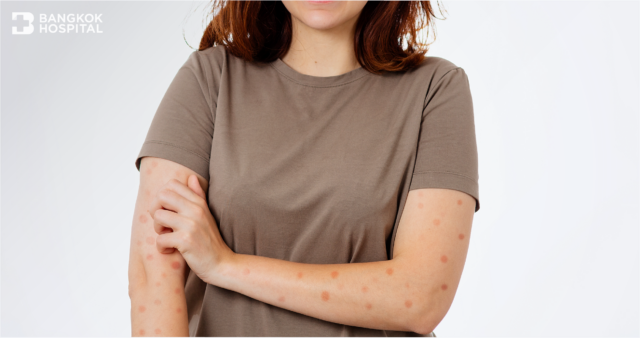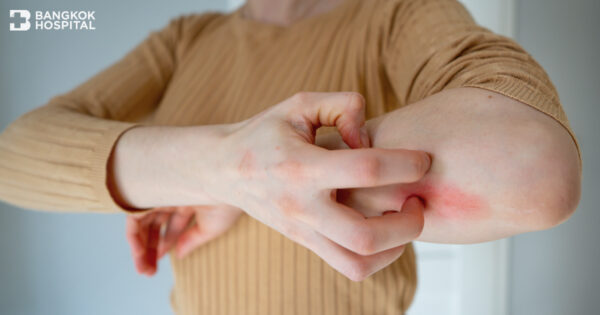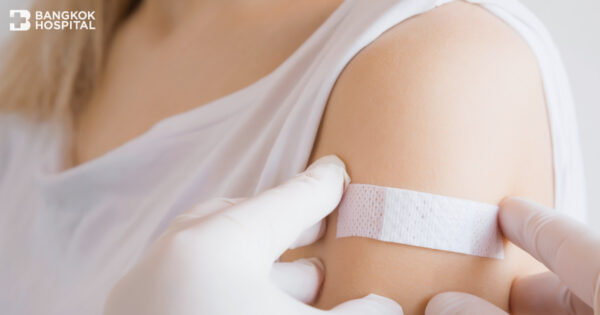Having sex or sexual intercourse is all about caring. Without the right knowledge, understanding, protection, and look after yourself, you may be at risk of sexually transmitted diseases (STD), unplanned pregnancy and other health risks that can follow. Therefore, you can not only have a safe and enjoyable sex but also are well protected from STD.
STDs That You Should Know
Even though the number of sexually transmitted diseases remains the same but with the diversity of gender, there are many forms of sexual relationships, leading to different STDs caused by bacteria, virus and some fungi. The most common STDs are chlamydia, gonorrhea, HPV infection, syphilis, and HIV infection.
What Is Chlamydia?
Chlamydia is a bacterial infection from Chlamydia Trachomatis. It is the most common STD caused by having sex with infected partner. The incubation period is 7-21 days while 50% of infected men will not show any symptoms. If the symptoms persist, there will be pain when urinating, clear or cloudy discharge at the tip of penis, burning or itching in the urethra or testicular pain. If left untreated, it can cause the sperm duct to swell, leading to infertility. More than 70% of infected women will not have any symptoms as well. The obvious symptoms will be urinary retention, unusual vaginal discharge, pain during intercourse, bleeding between periods or after intercourse, and abdominal pain. If left unattended, it will lead to pelvic inflammation, blocked fallopian tubes as well as severe complications that can cause infertility or ectopic pregnancy. Moreover, it can infect the anal area and eyes which can cause conjunctivitis.
What Is Gonorrhea?
Gonorrhea, caused by bacteria called N.gonorrhoeae, is the second most common STDs. The incubation time is 1-14 days during which the symptoms will appear in infected men around 2-5 days after being exposed. The symptoms are the same as Chlamydia such as pain when urinating, green or yellow pus-like discharge, burning or itching in the urethra, foreskin inflammation, swollen and inflamed testicles. If infected in female, the incubation period is unclear, but the symptoms such as urinary retention, greenish or yellowish vaginal discharge, burning itch, bleeding between periods or after intercourse, and abdominal pain will appear 10 days after being exposed. But more than 50% of women usually have no symptoms or only have a slight increase in vaginal discharge, leading to pelvic inflammatory or blocked fallopian tubes. Moreover, the anus can also be infected causing itchiness with seeping pus or blood and having to strain during bowel movements. If it affects the eyes, it can cause conjunctivitis. If it affects the throat, it will cause sore throat and pus on tonsils or joint pain. Therefore, annual screening is very important, especially those in high risks group who have multiple partners should have a screening every 3-6 months in order to have a timely treatment, If left untreated, it may cause severe complications leading to infertility or ectopic pregnancy.
How To Check If You Have HPV?
Human Papilloma Virus or HPV is another sexually transmitted disease. If contracted with low-risk strain, you will have genital warts which do not develop into cancer. But it is a high-risk strain, you will not have any symptom, but it will develop into cancer such as cervical, vulva, anal, penis, or oral and throat cancers. Hence, screening for HPV every 1-3 years is an important ritual that you should not neglect. Moreover, both men and women should have 3-dose of HPV vaccines for the best protection. In case you are infected and get a treatment right away, there is a chance that it will be completely cured.

How To Observe Syphilis
Syphilis can be transmitted through sexual intercourse or passed on from mom to baby from bacteria called Treponema Pallidum. In the primary stage, there may be sore appearing around the genitals, mouth, and anus. They are not painful and will disappear within 3-6 weeks, making you complacent and neglecting to see a doctor. Although the sore goes away without proper treatment, it can still spread to your partner. It will also develop to secondary stage with unpainful red, raised rashes which can be prominently spotted on palms and sole, including patchy hair loss, muscles aches, fatigue, swollen lymph nodes, and weight loss. If not treated, it will develop into a latent stage. In the tertiary stage, it will affect heart, blood vessel, eye, liver, bone and joint, nerve, brain and even death. In the case that the mother passed on syphilis to her newborn, the baby will have anemia with congenital diseases such as hearing problems, deformed nose or dental defect. Therefore, you need to have a blood test once a year when you have sex with suspected syphilis partner, have sex without protection, change partner, become pregnant, or infected with another sexually transmitted disease. If found infected, follow your doctor’s advice accordingly. The sooner you find out about syphilis, the better you can completely cure. Moreover, syphilis can lead to high risk of HIV infection.
How Is HIV Transmitted?
Human Immunodeficiency Virus (HIV) is a kind of virus that destroys the white blood cell or T-Cell, causing immune deficiency. If left untreated, it will lead to AIDS. HIV spreads when infected blood enters the body (from intercourse or sharing the same infected needle), or from mother to her baby. What people who are infected with HIV should know is that they may not always end up with AIDS. If they are being treated, the virus will stay in the body without causing any problem, allowing patients to live a normal life. Today, the treatment involves taking continuous antiretroviral drugs to maintain good health and reduce spreading. It is recommended that you have HIV screening 1-2 times per year, or when you have unprotected sex, change partner, become pregnant, or infected with another sexually transmitted disease. If you find out early and get a treatment right away, it will reduce severity and restore your immune system to almost or the same level as uninfected persons while reduce risk of spreading to others.
How To Protect Yourself from STDs
STDs can be protected as follows:
- Choose wisely, avert danger: choose the right partner, avoid multiple partners, avert from having sex with a stranger, choose proper hangouts, and avoid risky sexual activities such as group sex or orgies.
- Use condom every time you have sex: it can protect you from HIV and other STDs. Choose quality products that are certified by Food and Drugs Administration.
- Take PrEP: if you have unintended sex, you need to consult your doctor immediately to get pre-exposure prophylaxis (PrEP) drug to help reduce risks of HIV infection. Follow your doctor’s advice accordingly.
- Annual blood test: have an annual checkup regularly, especially those among the risk group. If detected, you can have a treatment right away.
- Consult a specialist: before or after having sex. Some people may have latex allergies, some may unwittingly have sex with strangers, and some may not reach climax and other sexual issues. It is best to consult a specialist to take good care of yourself and help keep STD at a distance.
Sexually Transmitted Diseases Specialist
Dr. Pawornrat Tatirangsansuk, Internist, Infectious Clinic, Bangkok Hospital
Dr. Surachat Chuaychob, Internist, Infectious Clinic, Bangkok Hospital
Hospital Specializes in Sexually Transmitted Diseases
Bangkok Hospital is well-equipped to treat all sexual problems by experienced specialist and multidisciplinary doctors to prevent and effectively prolong your sexual health and answer to all of your needs, away from the diseases.











